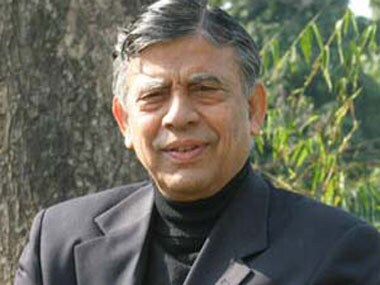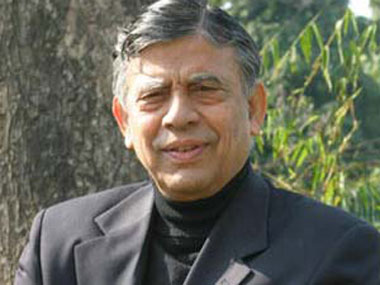“The Indian economy is presently poised on the edge of a fiscal precipice…”
Right from that attention-riveting first sentence, the Kelkar committee report on fiscal consolidation, which was put out in the public domain late on Friday ( and can be read here ), hammers away at just one grim theme: that unless the subsidy on fuel, food and fertilizer is cut back to sustainable levels, India will face a crisis worse than the one in 1991.
And if that happens, the “poor and the unemployed”, in whose names politicians down the line from Sonia Gandhi to Mamata Banerjee to Mulayam Singh Yadav to assorted BJP leaders have been piling on the mountain of subsidies or resisting even the feeblest efforts to reduce it, will suffer the most.
The report should be made mandatory reading for politicians across the spectrum who appear keen to burnish their credentials in defence of the poor with reckless populism, as if such actions don’t have serious economic consequences.
It is also prescribed reading for sections of the urban middle class - who, as we had noted ( here ), have failed to appreciate that failure to address the subsidy burden will come back to bite them in ways that are more serious than the short-term pain they are being asked to bear.
[caption id=“attachment_472453” align=“alignright” width=“380”]
 The committee headed by Vijay Kelkar has painted a grim picture of an imminent fiscal crisis.[/caption]
The committee headed by Vijay Kelkar has painted a grim picture of an imminent fiscal crisis.[/caption]
But from the early response from the government, it appears that the warning may go unheeded. At a press conference following the release of the report,Department of Economic Affairs Secretary Arvind Mayaram noted that it may not be possible to take on board some of the panel’s recommendations. “Some suggestions seem contrary to the declared objective of the government of sustained and inclusive growth,” he said.
The Kelkar committee, which had been tasked by the UPA government, to draw up a roadmap for fiscal consolidation, had submitted its report early in September, ahead of the latest round of diesel price hike and the cap on subsidised LPG cylinders.Taken in its entirety, the report puts out the starkest warning ever about the risks to the Indian economy from the UPA government’s budget-busting spending since 2008, and the failure to do anything to rein in subsidies.
“We cannot overemphasize the need and urgency of fiscal consolidation,” the report notes. “Growth is faltering and inflation seems to be embedded. The external payment situation is flashing red lights. The global economy is likely to be more turbulent, making financing of the large external payment deficits very challenging. Potentially, if no action is taken, we are likely to be in a worse situation than in 1991.”
The report also shreds the UPA government’s fictional budget arithmetic, noting that unless corrective action was taken now, the fiscal deficit for 2012-13 - which was projected at an unrealistic 5.1 percent of GDP - would mount to 6.1 percent. Even if a string of hard economic decisions, which will be politically unpalatable, are taken now, the fiscal deficit would still overshoot, and end up at 5.2 percent of GDP, it observes.
In perhaps the clearest signal to Sonia Gandhi that the Food Security Bill provision is unaffordable given the current state of the government’s finances, the Kelkar committee has recommended that the measure be “appropriately phased taking into account the present difficult fiscal challenges.”
Even without factoring in the provision for the Food Security Bill, which seeks to enhance coverage and food entitlements, the report observes that food subsidy bill for this year will shoot up by Rs 10,000 crore owing to the government’s announcement of additional allocation of foodgrains during the year.
The report notes that whereas Budget 2012-13 sought to limit subsidies to 2 percent of GDP, that number will likely be overshot. “With the depreciating reupee and oil prices in (the) international market remaining sticky, subsidies are projected to rise to 2.6 percent of GDP. "
The report then makes some stern recommendations to bring the subsidy bill under control.
Fuel subsidy: Noting that the price of diesel had not been revised in 26 months (prior to the action we saw earlier this month), the committee recommended that diesel prices be hiked by Rs 4 a litre. It further recommended that price adjustments be made in “small successive steps” so that the the government could move towards complete deregulation of diesel as early as possible.
“Our policy objectives should at a minimum aim to eliminate half of the diesel per unit subsidy during this year itself by March 31, 2013, and the remaining half over the next fiscal year. Similarly, our policy goal should be to eliminate the LPG subsidy by 2014-15 by
reducing it by 25 per cent this year, with the remaining 75 per cent reduction over the next 2 years. For kerosene, the objective should be to reduce the subsidy by one-third by 2014-15.”
Smaller and more frequent price revisions, the report noted, “should be taken as necessary… to meet the goals specified, and left to the discretion to the Oil Marketing Companies, who should be empowered to make such revisions.”
On the basis of an analysis of price revisions in the past20 years, the report claimed small and incremental price increases “have never led to any serious resistance.” Thus, it noted, the government’s strategy should be to “keep adjusting the price on a regular basis inincremental steps towards eventual deregulation of diesel and an affordable level of subsidy on LPG and kerosene.”
Food subsidy: The committee recommended thatthe Central Issue Price (CIP) be revised every time theMinimum Support Prices (MSP) are decided every year. It noted that direct transfer of cash subsidies may be a more efficient way of targeting the subsidies at the intended beneficiaries.
The risk of doing nothing
The Kelkar committee concedes that the subsidy reduction measures as it has outlined will of course have significant short-term
negative impact on incomes and spending of all households. But it warns that the consequences and pain would be even worse if these fiscal consolidation measures not be pursued. ““A do-nothing approach would mean the risk of a much larger adjustment of incomes and spending forced by the markets, both domestic and international, with a spiralling fiscal deficit and its consequences for much slower growth, rising unemployment, and higher inflation.”
The UPA government has of course to bear much of the blame for its having wrecked fiscal consolidation measures and for bloating the subsidy bill. If that means it has to pay a political price, come election time, so be it. But in equal measure, Opposition parties, which are hoping to reap the political harvest of the UPA government’s unpopular moves, too ought to wake up to the serious consequences of their continuing to block even the government’s feeble efforts today to begin to cut back on subsidies. That way, as the Kelkar committee report warns, lies only economic ruin. If crisis strikes, there will be no winners.
Venky Vembu attained his first Fifteen Minutes of Fame in 1984, on the threshold of his career, when paparazzi pictures of him with Maneka Gandhi were splashed in the world media under the mischievous tag ‘International Affairs’. But that’s a story he’s saving up for his memoirs… Over 25 years, Venky worked in The Indian Express, Frontline newsmagazine, Outlook Money and DNA, before joining FirstPost ahead of its launch. Additionally, he has been published, at various times, in, among other publications, The Times of India, Hindustan Times, Outlook, and Outlook Traveller.
)